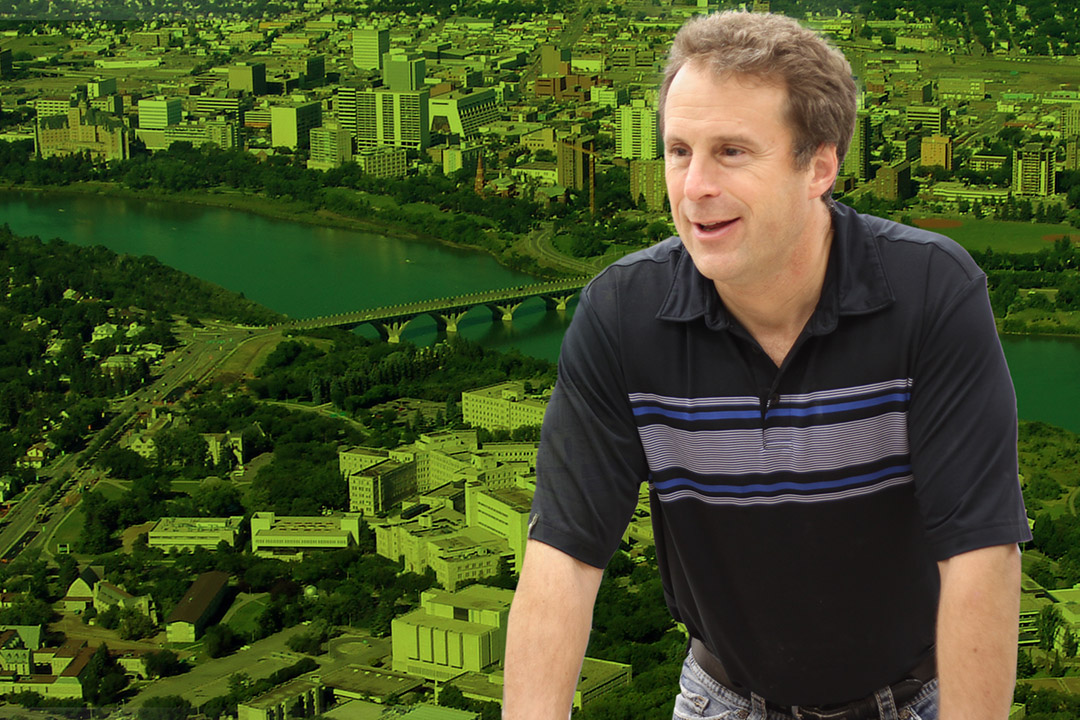
Speakers Bureau engages university with the community
When Sean Maw relocated to the University of Saskatchewan, he was searching for a way to bring the community into his work—to step out of the office, away from his desk, and get some hands-on time with the next generation of bright young minds.
By HenryTye GlazebrookAnd that’s where the U of S Speakers Bureau came in, like a key plucked from the ether to open new doors for Maw.
“I did upwards of 50 of these (talks) in Alberta, when I lived in Calgary,” said Maw, an associate professor with the College of Engineering. “I was looking for a way to link in with the K-12 community on engineering-related topics in the classroom. When the Speakers Bureau appeared, I signed up immediately.”
Maw has since given eight talks as part of the U of S Speakers Bureau, on a wide range of topics, everything from the technology of sports doping to Indigenous watercraft design. The goal, he said, is to showcase to the community some of the exciting research being done at the university, to make it accessible to those just starting on their academic path and to give students a real-life target that they can aim for. “The Speakers Bureau is a very important outreach program of the university,” he said. “It helps ground us in the community and it helps show the relevance of our work. It also helps inspire and motivate the kids to see what they can do as adults.”
That idea of accessibility for all is one of the founding principles of the Speakers Bureau, which was established in August 2016 with support and funding from the U of S Office of Community Engagement and Outreach. U of S faculty, instructors, researchers and graduate students have now given more than 100 free community presentations since the program began.
“Having an enthusiastic expert come in and give a presentation about their work, which is tailored to the specific audience, is a very direct and practical sort of engagement between the university and the broader public,” said Garrett Richards, founder and co-ordinator of the Speakers Bureau.
“It reminds people that the work being done at the U of S is interesting, relevant and understandable. I believe it has the potential to demystify the university as an institution, highlighting the human faces behind what can come across as a complicated and inaccessible, even sometimes elitist entity.”
Richards said the idea for the Speakers Bureau came in part from his former post-doctoral advisor, Toddi Steelman, who recommended he run with the idea when he expressed appreciation for a similar program at his old PhD stomping grounds at the University of Victoria. But when Richards starts talking about his own work in knowledge mobilization—which involves exploring the ways that academic findings, research, data and conclusions can be tangibly put to use—it’s easy to see why the concept of the Speakers Bureau hits so close to home for him.
“The Speakers Bureau is not only an opportunity to directly mobilize the existing knowledge of university experts, but it is also one of many initiatives that can help to train researchers—especially early-career ones like graduate students—as knowledge mobilizers throughout their career,” he said.
“Getting some experience with summarizing your research focus in plain language, targeting it to a public audience, often made up of elementary or high school students, and presenting it in an engaging way to solicit questions and discussions, can change the way you think about the potential social relevance of your work.”
Visit the Speakers Bureau website for a full range of speakers and topics.

